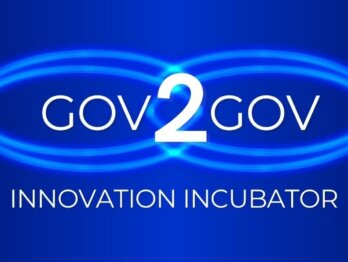Innovation is not a dirty word

If you do not name a thing, how can you talk about it? If you avoid a word, what do you miss out on?
In some recent discussions, some members of the OPSI team were talking with people from one jurisdiction about how the word “innovation” did not seem to be that commonplace in their context. It seems that as a word, innovation had gone through a period of heavy (over?) usage and was now seen as a bit “worn out”.
This is not uncommon. I can think of many conversations I have been in or have witnessed about how innovation is overused, used to make a boring project sound sexy, or how it is used so often that it is in danger of becoming meaningless.
Yet, as Christian Bason once wrote when he headed the Danish public sector innovation lab, MindLab, “Innovation is a terrible word. But there’s nothing wrong with its content” and “if ‘innovation’ wasn’t part of our vocabulary, we’d have to invent it.” As he discusses, the ability to do innovation depends in part upon an awareness of innovation. If people cannot talk about it as a practice, if people cannot label activities and lessons under a common label, then there is going to be limited progress in developing the practice. The language of innovation matters, because:
- it connects us with, and allows us to access, many years of theory and practice; all the lessons and insights about innovation can be hard to find if there is no common label
- the word gives us a way to learn from otherwise unrelated contexts. If I see a new project done in forestry, I am unlikely to see it as relevant to the health sector, unless the lessons can be made more accessible. There needs to be a shared vocabulary, an enabling language, that allows us to connect divergent experiences and activities from different settings
- it gives us a way of labelling activity that is different from the business-as-usual, and to think about what that might mean with regards to management, support, requirements, learning and so on. Innovation provides a means of categorising projects, to know which need to be treated differently to more traditional projects.
This is not to say that Christian was wrong to label it a terrible word, as it:
- is confusing and ambiguous (because innovation is about what is different to before, and that keeps changing)
- is sometimes used when it is not appropriate. Sometimes there can be “innovation theatre”, where the language of innovation can be used a lot, yet not be matched with either the real intent or practice of innovation, leading to confusion and/or disappointment
- can be a bit alarming. The word “innovation” can trigger people (decision-makers, control authorities, media, politicians) to have certain expectations or concerns, even without knowing anything about the relevant initiative or project
- is used a lot. Heaps and heaps. All the time. It can feel clichéd and tired.
The pitfalls of the word innovation are why we at OPSI have developed different models to help enable better, richer and more sophisticated conversations about innovation. Our innovation determinants model helps us think about whether the conditions for innovation to occur are in place. The innovation facets model helps us talk about the different ways that innovation can occur, the different purposes it can have, and how each can add value and be supported. We, along with many others, are trying to enrich the vocabulary around innovation, to make it easier to talk about, to differentiate, and to enact. Innovation can be hard, but it gets easier if you can learn about it as a practice, and the word “innovation” helps us do that. Innovation is harder if you do not have the language to help you make sense of it, to learn from it, and to share the insights with others (particularly those in seemingly unrelated areas of activity).
The other thing to note is that as the practice of innovation matures, as people get a better shared sense of what it is (and what it is not) and when it matters (and when it does not), then repeated use of the word “innovation” begins to feel less jarring. I suspect it is a word that has to be over-used, before it starts to feel comfortable.
In short, innovation is not a dirty word. It needs to be embraced, even though it can be a terrible word.












